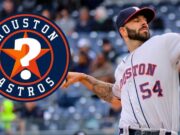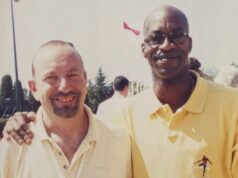With Paul Schienberg, PhD
The Commerce Bank Championship was played from June 27 – July 2, 2006 on the now prestigious Eisenhower Park. The public facility was the home of the 1926 PGA Championship with legendary Walter Hagan. I was able to engage Tom McKnight on the way to the clubhouse. He proved to be an open, knowledge filled, and amiable person, even after a so-so round of golf.
Here is a transcript of that conversation.
Schienberg: Do golfers really believe that the mental part of the game is really that important? If you think it is that important, do you go through specific mental steps to prepare yourself for playing?
McKnight: When you play at this level, you know it is 90% of it.
Schienberg: Why is it that so much focus is on technology of golf clubs and balls?
McKnight: A golfer tries to get the best equipment available. When you are working on your game, you are trying to work on the mental part of the game, swing thoughts and what is occupying your mind. Also, I ponder, what can I do that will work today? What can I do to keep my mind clear and focused? What I need to focus on is what is going on now – not on a bad shot or some other negative thoughts.
Schienberg: Do you do things to improve your mental game?
McKnight: Yeah, I practice on trying to focus on things whether it’s through my routine or certain swing thoughts. Under pressure your mind can start to race a bit and you tend to forget what you should be thinking about. At this point, as you are walking the fairways, think about your breathing or look at the tops of trees and watch the formations of the leaves. Get your mind back to what you are doing. The negative thoughts can get in your head and just stick like glue. You have to put intentional effort on getting your mind back to the positive attitude toward your game.
Schienberg: And, when the bad thoughts are there when you get to the course? You need to clean them out?
McKnight: Absolutely, it’s not just on a day to day basis. It may be a shot to shot. I can be playing along great and I hit a bad shot and next thing I know I lost it mentally. It feels like I’m playing in the dark all of a sudden. You lose your tunnel vision on your target. Sometimes it’s hard to regroup and get it back. The better players are the ones that do it the best.
Schienberg: Does visualization play a part in getting it back or correcting the problem? And how?
McKnight: I doubt there is anyone out here (The Tour) that doesn’t do that to get back on track. The ones that can focus the clearest are the ones that hit the best shots.
Schienberg: When you visualize do you not only see the flight of the ball, but also hand, club, or body position?
McKnight: Actually, I just visualize ball to target – not really my swing. You may feel like you are looking at yourself as you swing – but not before you swing – like visualizing my hands here or club there – you can get yourself in so much trouble by doing that – it just doesn’t work.
Schienberg: What do you do if a particular club isn’t working for you that day? Do you just forget it’s in your golf bag?
McKnight: Never did anything like that. I never guarded against using a particular club. Some clubs might have a tendency to hook more that others or cut more that others. Never avoid using a club. If you hit a bad shot, you hit a bad shot.
Schienberg: How did it go for you today?
McKnight: Not very good. I was even par.
Schienberg: Then you are still in the hunt.
McKnight: I got off to a bad start at 3 over and finished strong.
Schienberg: Is there someway you are thinking about your round tomorrow that might get you off to a better round?
McKnight: No. It’s just a matter of trying to be better focused. No matter where you hit it, just keep going and playing it and trying to do the best you can with it. It’s funny. I was just talking with Graham Marsh. We were going through the same conversation, he and I, and he shot two under today. We were talking about the mental aspects of it and how I can overcome some of the problems. I asked him for his opinions about a couple of things.
Schienberg: Did he have any good ideas?
McKnight: Oh yeah. He’s a seasoned veteran. He’s been around for a long time as a player. It is a good to pick up a tidbit of information about what’s troubling you.
Schienberg: Thank you for your time. Good luck tomorrow.
McKnight: You are welcome.














